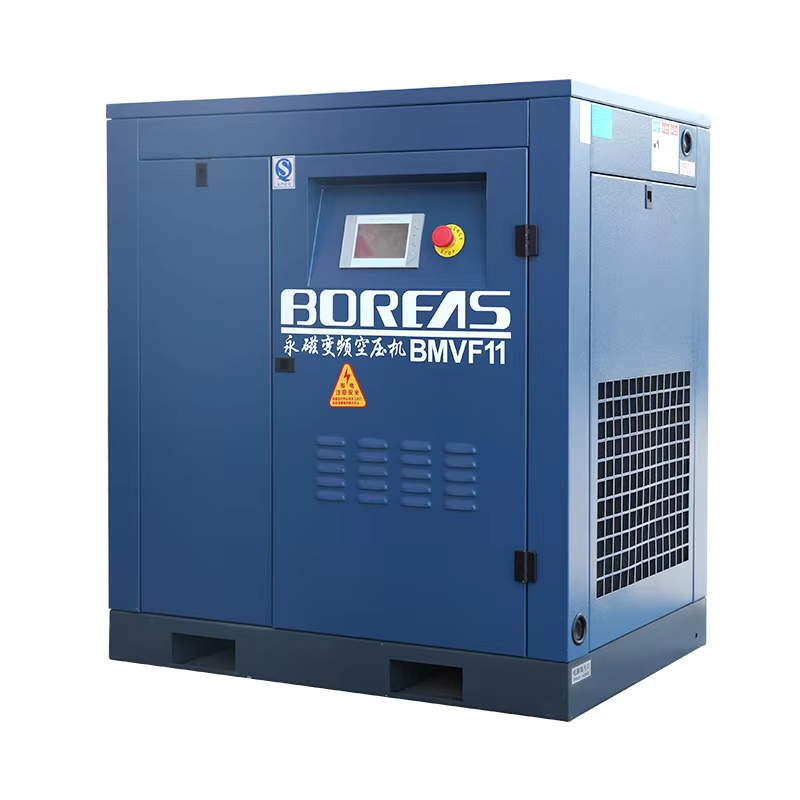Critical Air Compressor Parts Requiring Regular Maintenance
Air Filter Care and Replacement
Keeping the air filter clean on an air compressor is really important for it to run efficiently. When checking the filter regularly, look out for buildup of dust and dirt since these things clog up the system and make the whole machine work harder than necessary. Most folks find that cleaning or replacing the filter every three to six months works well, though heavy users might need to do this more often depending on where their equipment sits (dusty workshops vs clean environments). Always go for good quality filters that match what the manufacturer recommends because cheap alternatives just don't cut it. They either won't fit right or fail prematurely. Taking care of this simple task extends how long the compressor lasts and saves headaches down the road when breakdowns happen at inconvenient times.
Lubrication System Management
Looking after the lubrication system in an air compressor really matters if we want it to work properly over time. Checking oil levels regularly isn't just good practice it's essential stuff. Most manufacturers will tell us exactly when to change the oil, so following those instructions makes sense. What kind of oil goes in there matters too because different oils handle heat differently and some last longer than others before breaking down. We've seen cases where using cheap oil leads to overheating problems down the line. Setting up some sort of reminder system for oil changes works wonders in keeping things running smoothly. Without proper lubrication tracking, unexpected breakdowns happen all too often, which means expensive fixes later on. A well maintained lubrication system keeps compressors working reliably year after year instead of needing replacement sooner than expected.
Moisture Drain Valves and Tank Maintenance
Keeping those moisture drain valves and air tanks properly maintained stops corrosion and keeps contaminants out of the system. Most folks find that draining the tank weekly works pretty well to stop problems before they start. Don't forget to check those drain valves too for any signs of wear or damage. A cracked valve can cause all sorts of headaches down the line, including pressure drops and reduced airflow throughout the system. Setting up a regular maintenance plan makes sense for anyone who wants their moisture management system running smoothly over time. The bottom line? Regular upkeep not only extends equipment life but saves money in the long run by preventing costly repairs caused by neglected maintenance tasks.
Best Practices for Air Compressor Accessories and Components
Inspecting Belts and Hoses for Wear
Belts and hoses form the backbone of any good air compressor setup, so checking them regularly makes absolute sense. Most folks tend to overlook these parts until something breaks down completely. A quick look around for cracks, frayed edges, or just general wear and tear goes a long way. Finding small problems before they turn into big ones saves money on repairs and keeps operations running smoothly. When we spot damaged belts or worn out hoses, swapping them out right away becomes necessary business. Some shops even stock up on spare parts specifically for this reason. Going the extra mile by investing in belts and hoses constructed from tougher materials pays off in harsh environments where standard components would fail faster. This kind of maintenance approach protects against unexpected breakdowns while giving those expensive compressor accessories far longer service life than they'd otherwise have.
Monitoring Pressure Levels to Prevent Strain
Monitoring pressure in air compressor systems prevents unnecessary wear and keeps operations running smoothly. Pressure gauges should be checked regularly to make sure everything stays within what the manufacturer recommends. When workloads change throughout the day, adjusting compressor settings accordingly stops the machine from getting overworked, something that often leads to expensive breakdowns down the road. Training staff on proper pressure management makes all the difference too. Workers who understand why pressure matters tend to spot problems earlier and take better care of equipment overall. The bottom line? Pay attention to those pressure readings and follow basic maintenance routines, and the air compressor will last much longer while performing reliably when needed most.
Preventing Common Issues That Shorten Lifespan
Avoiding Overheating Through Proper Ventilation
Air compressors tend to overheat quite often, which shortens their lifespan, but this problem can usually be stopped by making sure there's good airflow around them. Start by putting the unit somewhere with decent ventilation so heat can escape properly and the inside parts stay cooler. Regular maintenance includes checking those vents for dust accumulation or anything else blocking the airflow path. Also worth noting is how hot the room gets where the compressor sits – if temperatures run high, extra cooling solutions may become necessary. Keep all these factors in mind during operation, and chances are the machine will run smoothly for years without suffering from excessive heat damage.
Addressing Air or Oil Leaks Promptly
Fixing air or oil leaks quickly matters a lot if we want our air compressors running properly over time. A good maintenance routine should involve checking those air and oil lines regularly for any sign of leakage points. Some folks swear by ultrasonic leak detectors because they pick up on tiny escapes that normal inspections might miss entirely. Operators need training too - watching out for things like sudden drops in pressure gauges or strange oil spots around fittings can catch problems before they get bad. Don't wait until there's major damage happening inside the machine itself. Quick fixes save money in repairs down the road and keep everything working smoothly without wasting precious resources through unnecessary pressure losses or excessive oil consumption.
When to Schedule Professional Air Compressor Servicing
Annual Maintenance Checklist for Optimal Performance
Putting together an annual maintenance plan makes a big difference in keeping air compressors running at their best. A good checklist needs to cover everything from basic visual checks to replacing worn parts and making those small adjustments that often get overlooked. Getting a trained professional to handle the yearly checkup ensures the machine stays efficient and works properly over time. Keeping records of past services turns out to be really helpful too. When technicians can see patterns in what breaks down repeatedly, they can address problems before they become major headaches. And let's face it nobody wants to deal with surprise breakdowns during production hours. Taking this methodical approach extends equipment life significantly while cutting down on those costly emergency repair calls that disrupt operations.
Recognizing Signs You Need Expert Intervention
It makes good sense to train operators so they know what to look for when something might go wrong with the equipment. Strange sounds coming from machinery, unexpected shaking, or fluctuations in system pressure often mean it's time to call in someone who knows what they're doing. Fixing little problems right away before they turn into big headaches saves money in the long run. Getting in touch with the people who made the compressors regularly for tips on fixing things and suggested maintenance work pays off. Keeps everything running smoothly without all those annoying breakdowns and expensive fixes down the road. The bottom line? Keeping tabs on how well equipment is performing day to day really does make a difference in how productive operations stay over time.

